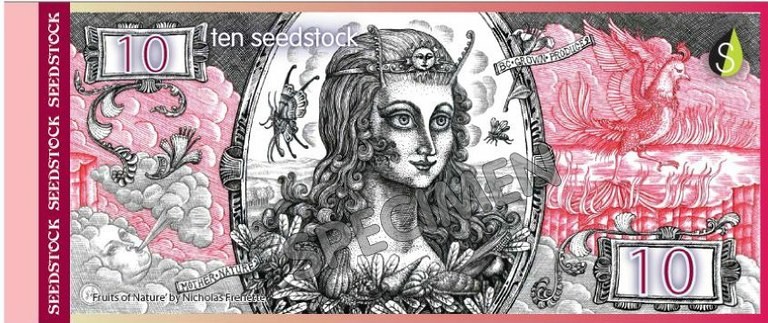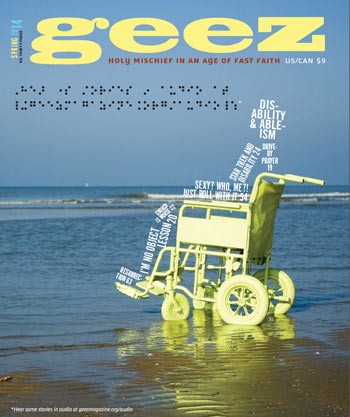Make your own money

Credit: http://seedstock.ca/about/the-seedstock-bills
Spending dollars at a local shop is a good start to reclaim power from the global market machine.
But maybe it would be even better if you started your own local currency.
A community in Vancouver recently introduced their own form of money called “Seedstock Community Currency.” This is the first project of a group called agorabora Collaborative Community Co-operative (or “agorabora” for short). The currency comes in bills of ones, twos, fives, tens and twenties with each denomination displaying the work of a different Vancouver artist.
Before handing out bills around the neighbourhood, there’s a lot of legwork to be done. In the case of Seedstock, the first step was getting small businesses to support and accept it. Once a business signs on, it is allowed to issue a certain amount of the currency. Then it’s expected to donate its newly issued Seedstock to a local non-profit organization, who can, in turn, distribute it to the public in exchange for donations. Once it’s in the public’s hands, Seedstock can be spent at any co-operating organization, and the cycle of local benefit continues.
More than just an experiment undertaken for novelty’s sake, Seedstock is a hopeful step toward a more human economic system that is viable over the long term. As it says on Seedstock’s website, “the relocalization of community economies [is] a vital key to a more sustainable, just and resilient future.”
If you’re looking for a real response to the destructive force that is global capitalism, a local currency may be a good place to start. If there’s not a project already underway in your community, start asking around; chances are there’s already a strong contingent of disillusioned post-capitalists primed for experimentation in alternative economics. Form a group and start brainstorming.
The hardest part, as attested by the founder of another local B.C. currency, the Powell River Dollar, will likely be recruiting businesses. But if you can find a team member who’s a smooth talker with the power of persuasion, you’re off to a good start. And once the currency is up and running, you’ll take “going local” to a whole new level.



Sorry, comments are closed.